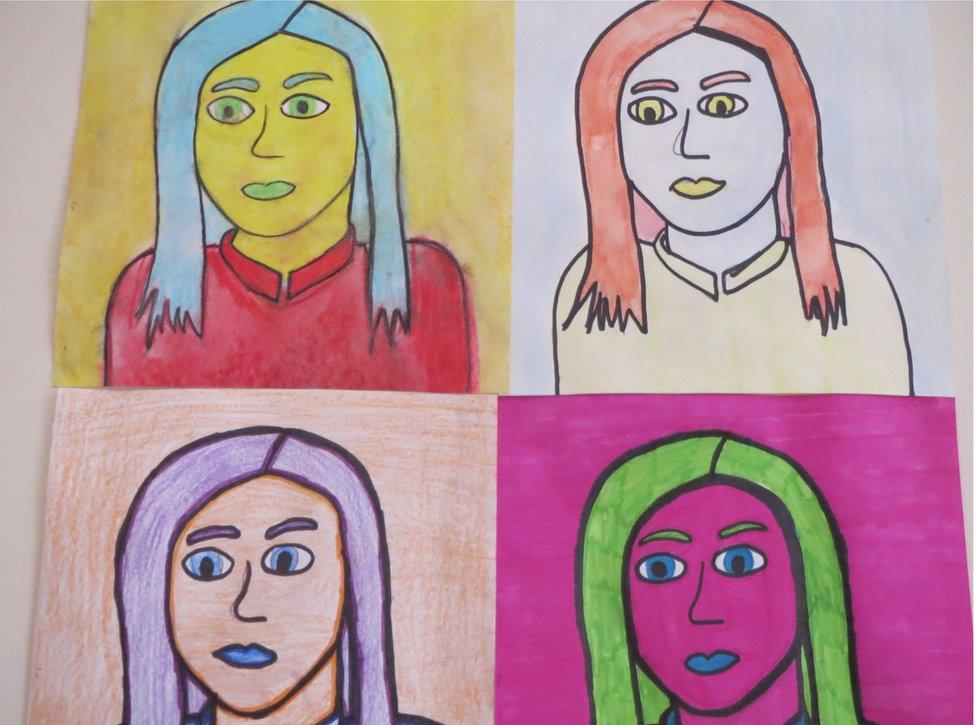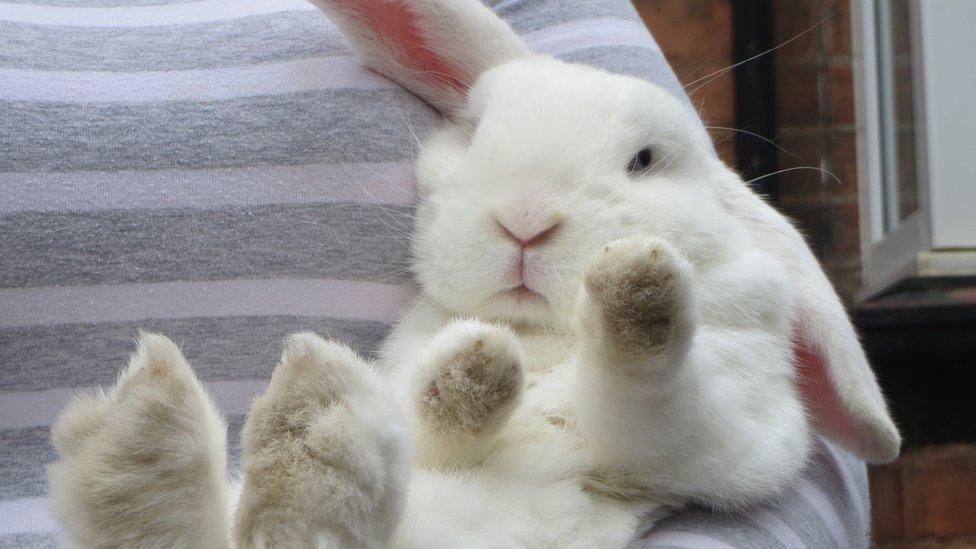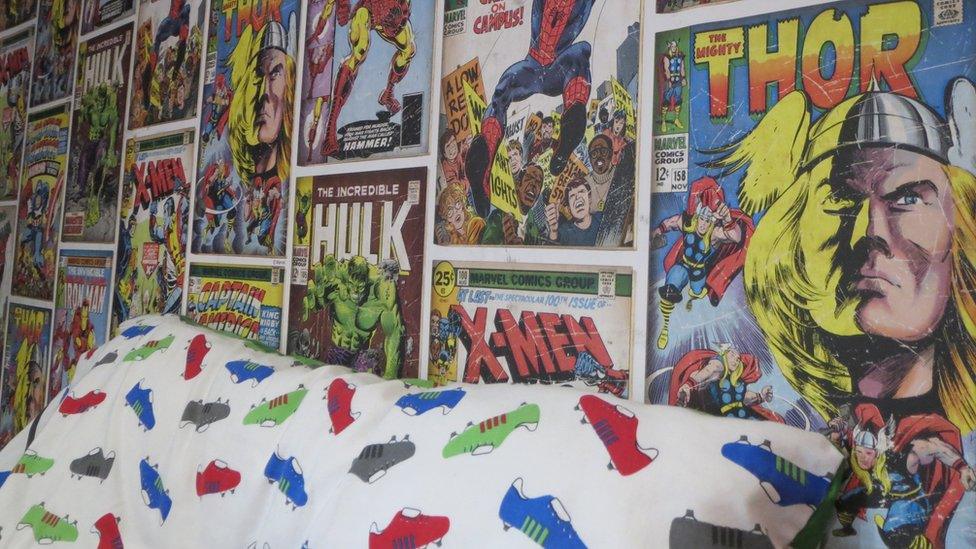Living in a children's home
- Published

There's no hint of an institution about the children's homes I went to see in Birmingham. Nothing clinical. No funny smell, signs or labels. From the outside they're just large family homes that fit in with the rest of the street.
I'm shown around by Jim Sullivan, managing director of a children's home company, who tells me: "We chose this house because there's a gap on either side of the neighbours. We're not attached to another home, so if there's noise we're not affecting anyone."
However, inside there are clues to tell you it's not your run-of-the mill family house. There's the chain on the front door, the two washing machines on the go, the unfussy kitchen and a small office full of folders and paperwork which can be locked.
Staff write up their notes on the dining room table and the team is big enough to have one member of staff, or sometimes even two, for one child. When it comes to cooking, everyone's encouraged to have a go, supervised of course.
It's a very chilled-out space, with large sofas, a big television and lots of positive affirmations on the walls. One teenager laughs as she says: "We're meant to take all our stuff up into our rooms when we come back from somewhere but 99% of the time there'll be someone's bag slung over the chair."
Every child has their own bedroom, which are all en-suite and individually decorated. One has expensive wallpaper printed with Marvel comic covers.
Pets are allowed too and one girl has two guinea pigs while another has a goldfish and a white rabbit.

Children in the home are allowed to keep pets
"Some of the children come here with reputations of hurting animals and being dangerous around other children, but we assess them and see what they're like," says Jim.
"When our staff have babies we trust the children to hold them. Just to watch their faces when they're holding a six-week-old baby, just the moment when they pick up a child for the first time and they're trusted, is beautiful and that teaches them that they're just like the rest of us."
Jim's company has just celebrated 14 years in business and is made up of five children's homes and one school. It's a profit-making venture and, according to Jim, it's typical of how children's homes operate these days.
Jim tells me that, before coming to him and his team, every child he's dealt with has gone missing at some point.
When that happens, the police can either record them as "missing" or "absent". However, according to a recent inquiry held by the All-Party Parliamentary Group for Runaway and Missing Children and Adults, if they're classed as absent less time is spent searching for them and therefore they are more at risk.
"Every child in our homes has a history of running away and being absent," says Jim. "If you read some of the reports when the children come to us it's unbelievable. The children have been sexually abused, physically abused and used in gangs."

The bedrooms are similar to those of any child
A 17-year-old girl told me: "A couple of years ago I went missing for two weeks and I don't remember any of it. I just know that I went on a bender and did some really, really bad things and the police found me.
"Previous foster placements and other children's homes couldn't cope with me," she admits. "I was on heavy drugs and I was a serious self-harmer. I had my first criminal record when I was 13, for GBH. I was taking overdoses regularly. I was vulnerable to older men and I was mostly high. They took advantage of me sexually and gave me drugs to do things."
Life feels very different for her now. She seems to respond to the care she gets at this particular home, likes having a 9.15pm curfew and she even understands why some children need to be restrained.
She doesn't go missing any more, she's sticking with school and has great hopes for the future. "All I needed was a tiny bit of care and support," she says.
A report into children's homes in England was published last month. It was written by Sir Martin Narey who used to be in charge of the National Offender Management Service as well as Barnado's.
In his report, Narey states: "Three-quarters of homes are good or better. Some are genuinely outstanding. I have been moved by what I have seen." However, he still believes there's room for improvement and thinks it's critical that they provide value for money.
To achieve that, he recommends setting up a Residential Care Leadership Board where experts in the field can come together to "bring greater clarity and coherence to this much misunderstood and grossly under appreciated part of children's social care".
You can hear Siobhann's report on Monday's Today programme on BBC Radio 4.